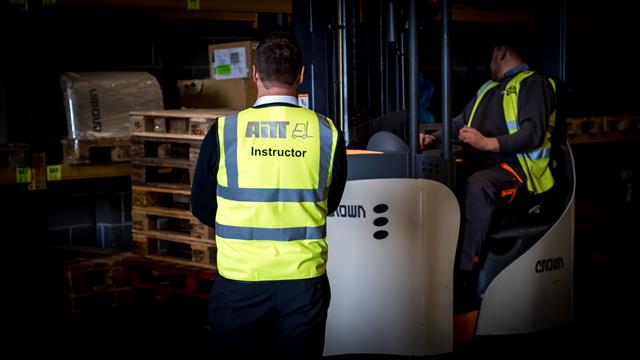 Adam Smith |
Adam Smith is the managing director of the Association of Industrial Truck Trainers, one of the UK's leading accrediting bodies for training providers.
If you're involved in workplace transport operations, how confident are you in new drivers' skills?
All too often, operator certificates are simply accepted at face value and are rarely verified thoroughly, either because recruitment agencies don't understand them, or employers don't know what to look for.
But without the relevant training and certification, operators and the future of entire businesses are at risk from accidents that could prove fatal.
So, as an employer, what should you be doing to get it right?
That was one of the questions we put to the speakers at our recent online conference. Drawn from a variety of different sectors, they all had one common theme: success in reducing incidents and accidents through a systematic approach. Fortunately, they were willing to open up to the audience and, as with most things in life, when they shared their experiences, everyone learned a lot.
Know your truck categoriesThe unanimously agreed starting point for employers when determining training was: check the truck category.
Training will differ for each truck depending on its lifting capacity, lift height, motive power, towing capacity, steering, purpose, etc. So if you're responsible for verifying operator certificates, first check that the company providing the training is accredited (so are working to proper and agreed criteria) and then make sure that the certificate is for the same classification of truck as the one your new recruit will be operating.
In the UK, employers are fortunate because they can look for the ABA truck category code along with an accreditation verification number. For example, in the case of AITT, that's instantly available in real time through our online ACORNS system.
Importantly, don't be afraid to challenge certificates. Taking an operator's word for it could lead to serious problems further down the line.
 Training is essential for keeping your business compliant with the law. |
Regularly monitor operators' skills During the conference, several speakers explained that implementing a standardised training program - such as those delivered by, or delivered in-house with the support of, accredited providers - allowed them to gain a proper understanding of their operators' competence in a clear and consistent manner.
Some of the most interesting takeaways for our attendees were the practical examples of the tools organisations used, such as regular observation periods, automated systems, auditing procedures and operator feedback questionnaires. Used consistently, these can provide employers with the detailed information necessary to determine whether more or different training is required.
Where training was needed, keeping operators engaged proved key to ensuring they took on board relevant skills - and correctly applied what they had learned.
Did it work? Well, using these methods the speakers reported that operators worked much more safely. One organisation reduced impacts by 50% over 12 months, while another reduced MHE incidents to almost zero over a 48-month period.
Stay on the right side of the law As well as keeping your operators safe, training is essential for keeping your business compliant with the law.
A speaker from the UK's Health & Safety Executive (HSE) revealed that companies routinely receive huge fines, sometimes running into millions of pounds, simply for lack of adequate training. It's vital, therefore, that employers have a clear understanding of their responsibilities.
Furthermore, if an accident should occur, the relevant authorities will want to know the operator's training history, and you will be required to provide it.
It is essential to check, therefore, when working with an accrediting body, that records are kept and information is traceable, so you can be confident you have followed all the necessary steps to make sure training is transparent and up to date. And that could prove invaluable if a case comes to court. In the case of AITT, all this is available via our ACORNS system.
Support is out there - just askIt's important to remember that help is at hand, and you don't have to work alone. Training accrediting bodies such as AITT offer the guidance and resources to ensure you're working in line with the latest best practice procedures and official guidelines.
AITT business members, for example, have access to up-to-date documentation and legislation, so whether it's a single in-house instructor or several, we'll work with organisations to guarantee that training will always be consistent.
In order to support the materials handling industry as effectively as possible, we have captured the entire, hour-long conference and have made it available free of charge and on demand.
So, whether you're a training provider, recruitment agency, employer or equipment user, you will find relevant information, practical tips and essential advice to support you, now and in the future.
The full webinar, as well as the individual speakers' presentations, can be viewed
here.